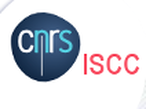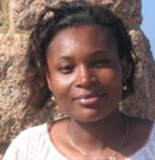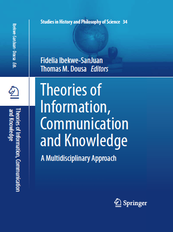The Project
EPICIC was a project funded for 2 years (2011-2013) by the ISCC
Consortium
Project aims
|
Although no consensus exists on a common definition of the concepts of information and communication, few can reject the hypothesis that information – whether perceived as « object » or as « process » - is a pre-condition for knowledge. Epistemology is the study of how we know things (Anglophone meaning) or the study of how scientific knowledge is arrived at and validated (francophone conception). To adopt an epistemological stance is to commit oneself to render an account of what constitutes knowledge or in procedural terms, to render an account of when one can claim to know something. An epistemological theory imposes constraints on the interpretation of human cognitive interaction with the world. It goes without saying that different epistemological theories will have more or less restrictive criteria to distinguish what constitutes knowledge from what is not. If information is a pre-condition for knowledge acquisition, giving an account of how knowledge is acquired should impact our comprehension of information and communication as concepts. While a lot of work has been in Information & Communication Sciences on the definition of these concepts, less research has attempted to establish explicit links between differing theoretical conceptions of these concepts and the underlying epistemological stances.
The EPICIC project and colloquium provided an opportunity to bring together eminent specialists to discuss the way in which different scientific disciplines perceive information - communication and knowledge relationships and the effect different conceptions of these two concepts have on interdisciplinary research. These specialists come from different scientific, cultural and geographic horizons (see Program). This will feed the debates and enrich our understanding of these two concepts. The EPICIC project gave rise to the EPICIC colloquium in 2011 and to a book published with Springer in 2014. |
|
EPICIC Colloquium - 8 april 2011 University of Lyon 3, France
Invited Speakers
These specialists come from different scientific, cultural and geographic horizon. This will feed the debates and enrich our understanding of these two concepts.
Bruno BachimontBruno Bachimont is Scientific Advisor to the Directorate of Education and Research, National Audiovisual Institute (INA) and Director of Research at the University of Technology of Compiègne.
He trained as a civil engineer at the Mines de Nancy in 1985 and obtained a PhD in Computer Science from Paris 6 University in 1990, another PhD in epistemology from the École Polytechnique in 1996, and his Habilitation à Diriger des Recherches (qualified to direct research) from the University of Technology of Compiègne in 2004. After carrying out research in the field of artificial intelligence in a medical environment (INSERM), Bruno Bachimont joined the National Audiovisual Institute (Ina) in 1998 where he directed research. In 2001, he became a teacher-researcher at the University of Technology of Compiègne (UTC). He has been in charge of research there since 2006. His research focuses on 3 objects: a philosophy of technology and digital technology, to understand how our knowledge and ways of thinking are made up, reconfigured by technology in general and digital technology in particular; a document and memory approach, to articulate the possibilities of the technique (document engineering, digital preservation) with a phenomenology of memory and the past; and finally formal ontologies, to understand how to explain and formalize the conceptual frameworks of our thinking. |
Søren BrierSøren Brier is professor of the Semiotics of Information, Cognition and Communication at Department of International Studies of Culture and Communication, Copenhagen Business School. He is also editor of Cybernetics & Human Knowing. He sits on the board of Systems Research, Biosemiotics, TripleC , Signs and the International Association of Biosemiotic Studies, Foundation of Information Science and Science of Information Institute.
Søren Brier is recipient of the Warren McCulloch Award from The American Society for Cybernetics. Research area: The philosophy of science problems involved in the search for a transdisciplinary theory of information, meaning, cognition and communication. It has to be naturalistic and include a phenomenological view in its ontology and epistemology as well as a view of language as an embodied social and cognitive organizer and coordinator. Another area is the impact of scientific thinking in the mass media in competition with common sense, political and religious thinking. He has published broadly in the field information science, biosemiotics, second order cybernetics and Peircean semiotic philosophy. Main book Cybersemiotics: Why Information Is Not Enough, Toronto University Press, 2008. (also a Google book). Special issue on Cybersemiotics of Entropy on the Net. His other publications include : Brier, S. (2010). Cybersemiotics and the Question of Knowledge, Chapter 1 in Dodig-Crnkovic, G. and Burgin, M. Information and Computation. World Scientific Brier, S. (2006): The foundation of LIS in information science and semiotics, Libreas: Library Ideas Brier, S. (2003): The Cybersemiotic model of communication: An evolutionary view on the threshold between semiosis and informational exchange. TripleC 1(1): 71-94. Brier, S. (1992): Information and Consciousness: A Critique of the Mechanistic foundation of the Concept of Information in Cybernetics & Human Knowing, Vol.1, no. 2/3, pp 71- 94. Here you can find many freely accessible articles. |
Luciano FloridiLuciano Floridi is Professor of Philosophy at the University of Hertfordshire – where he holds the Research Chair in Philosophy of Information and the UNESCO Chair of Information and Computer Ethics – and Fellow of St Cross College, University of Oxford, where he is the founder and director of the IEG, Oxford University Information Ethics research Group.
In 2006, he was elected President of IACAP (International Association for Computing And Philosophy). In 2009, he became the first philosopher to be elected Gauss Professor by the Göttingen Academy of Sciences. Still in 2009, he was awarded the Barwise Prize by the American Philosophical Association in recognition of his research on the philosophy of information, and was elected Fellow of the Society for the Study of Artificial Intelligence and the Simulation of Behaviour. In 2010 he was appointed Editor-in-Chief of Springer’s new journal Philosophy & Technology. He is currently the PI of the AHRC-funded project “The Construction of Personal Identities Online” and of the Marie Curie Fellowship Grant on "The Ethics of Information Warfare: Risks, Rights and Responsibilities" (FP7-PEOPLE-2009-IEF). Floridi is best known for his foundational research on two areas of research: Information Ethics and the Philosophy of Information. His research interests include the Philosophy of Information, Information and Computer Ethics, Epistemology, Philosophy of Technology, Philosophy of Logic and the History and Philosophy of Scepticism. He has published over a hundred articles in these areas in many anthologies and in such peer-reviewed journals as Archiv für Geschichte der Philosophie, British Journal for the History of Philosophy, Erkenntnis, Ethics and Information Technology, International Journal of Human-Computer Studies, Journal of the History of Ideas, Metaphilosophy, Minds and Machines, Philosophy and Phenomenological Research, Social Epistemology, Synthese and Zeitschrift für Allgemeine Wissenschaftstheorie. He is the author of Scepticism and the Foundation of Epistemology – A Study in the Metalogical Fallacies (Leiden: Brill, 1996); Internet – An Epistemological Essay (Milan: Il Saggiatore, 1997); Philosophy and Computing: An Introduction (London – New York: Routledge, 1999); Sextus Empiricus, The Recovery and Transmission of Pyrrhonism (Oxford: Oxford University Press, 2002). He is the editor of the Blackwell Guide to the Philosophy of Computing and Information (Oxford - New York: Blackwell, 2004). His most recent books are: The Philosophy of Information (Oxford University Press, 2011) and Information – A Very Short Introduction (Oxford University Press, 2010), and the Handbook of Information and Computer Ethics (Cambridge University Press, 2010). His next book is entitled The Fourth Revolution – The Impact of Information and Communication Technologies on Our Lives (OUP, 2012). His works have been translated into Chinese, French, Greek, Japanese, Hungarian, Persian, Polish, Portuguese and Spanish. |
Birger Hjørlandis a theorist in Library & Information Science (LIS) and is a professor at the Royal School of Information science, Copenhagen (Denmark). He is a member of the scientific council of the journals Journal of the American Society for Information Science and Technology and Journal of Documentation. He has published numerous articles on information science and on the theoretical analysis of the concept of information, notably in Capurro & Hjørland (2003).
|
Sylvie Leleu-Mervielis a Professor at the University of Lille-Nord de France; Director of DREAM (Development, Research, Teaching in Audiovisual and Multimedia) in Valenciennes; Director of the DeVisu laboratory.
She is also a scientific advisor to the Ministry of Research and Higher Education and editor-in-chief of the journal RIHM - Revue des Interactions Humaines Médiatisée RIHM. Sylvie Leleu-Merviel is interested in information intelligence and the human construction of meaning with a particular emphasis on the engineering of audiovisual documents. Her theoretical work focuses on representational engineering and the construction of meaning. Her research is applied to project management and quality for the program industry (in particular audiovisual and multimedia), especially in the design phase where the emergence of new technologies and the need for creative renewal lead to a complete overhaul. Notions of scriptwriting, storytelling, access to meaning, and more generally writing. She studies the operational concept of information in a context of decision-making and action. Sylvie-Leleu Merviel has published numerous works on these themes. She is the author of La conception en communication. Paris quality methodology: Lavoisier, Hermès, 1997; Digital creation: interactive writing experiences, Paris: Lavoisier / Hermès, (2005) and Objectiver l'humain? Paris: Lavoisier / Hermès, 2008. |
Ira Noveckis Research Director at the L2C2 laboratory (Laboratory on Language, Brain and Cognition) affiliated to the CNRS.
Trained in experimental psychology (New York University), he is particularly interested in the relationship between the (literal) meaning of a sentence and the way in which the interlocutor understands it. He worked on the development of experimental psychology which relies on empirical experiences to probe linguistic-pragmatic theories and phenomena. |
Organising committee
Henri Assogba - ELICO, University of Lyon3.
Delphine Billouard - IUT, University of Lyon3.
Fidelia Ibekwe-SanJuan - ELICO, University ofLyon3.
Stéphanie Pouchot - ELICO, University of Lyon1.
Colin SCHMIDT - Université Le Mans & ENSAM-ParisTech.
Marie-Claire Thiébaut - ELICO, University of Lyon3.
Eric Thivant - Centre MAGELLAN, University of Lyon3.
Delphine Billouard - IUT, University of Lyon3.
Fidelia Ibekwe-SanJuan - ELICO, University ofLyon3.
Stéphanie Pouchot - ELICO, University of Lyon1.
Colin SCHMIDT - Université Le Mans & ENSAM-ParisTech.
Marie-Claire Thiébaut - ELICO, University of Lyon3.
Eric Thivant - Centre MAGELLAN, University of Lyon3.
Colloquium programme
|
9h00 : Opening & welcome remarks
|
Jacques COMBY, Vice President Research, Université Lyon3.
Fidelia Ibekwe, Associate Professor, University of Lyon 3 |
|
9h30-11h The concept of Information in information science : epistemological investigations. Moderator: Josip Ciric (University of Zadar, Croatia)
|
Thomas Dousa: Documentary Languages and the Demarcation of Information Units in Textual Information
Birger Hjorland: The nature of information science and its core concepts
|
|
14h30-15h30 Information, communication and knowledge. Moderator : Fidelia Ibekwe-SanJuan
|
Luciano Floridi: Perception and Testimony as Data Providers.
|
|
16h00-17h30 : Relevance theory and meaning construction. Moderator : Colin Schmidt (Université LeMans)
|
Sylvie Leleu-Merviel: Horizon de pertinence dans le processus informationnel
Ira Noveck: The interface between sentence meaning and speaker meaning.
|
17h30-18h00 : Closing sesson
















